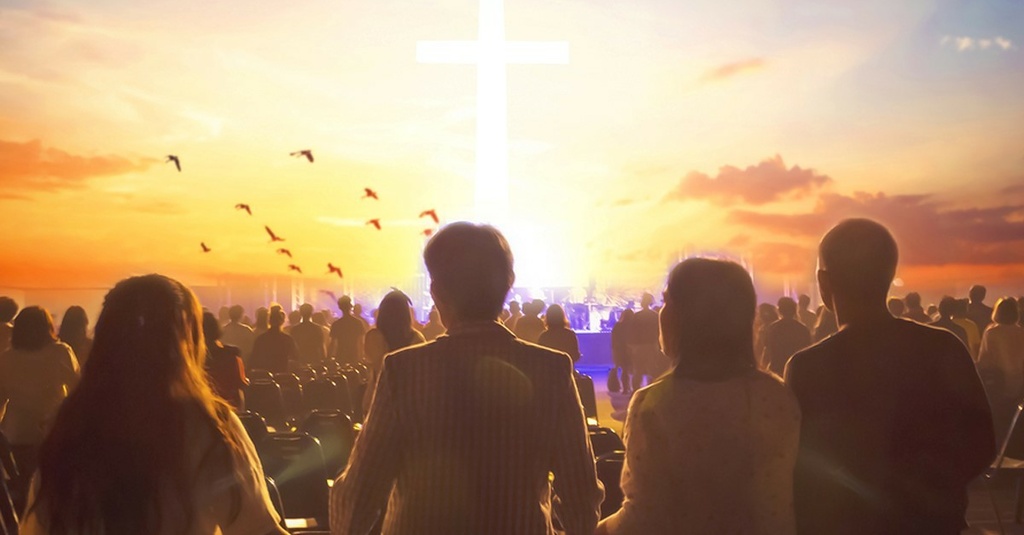
Christ’s Army of Royal Priests
Chalcedon's mission is the Kingdom of God, and that means helping to build strong Christians, strong families, and strong churches. This ministry seeks to be an asset to those churches who are laboring faithfully in the great work of Christian Reconstruction.

- Chalcedon Editorial
The church is God’s covenant people; these people are the recipients and channels of God’s real presence and glory on earth; they are soldiers in God’s war against the powers of darkness, the heirs of God’s Kingdom, and the possessors of eternal life.[1]
Do you think the church views itself this way? Consider the modern megachurch who bears the enormous financial burden of a multi-million dollar budget to sustain sizable property, extensive buildings, and staff expenses. It stands to reason that their primary battle is bringing in revenue which rarely leaves much else for advancing against the powers of darkness.
Or consider Roman Catholicism where we see the most clear distinction between clergy and laity to where the main clerical objective is the guarding and administration of sacraments. This produces an “ecclesiastical pietism” in which the sacred is kept as far away from the secular as possible.
Other churches can be equally handicapped by their own points of emphasis. This does not discount the valuable work that many churches are doing, but it’s difficult for any institution to emphasize something greater than itself if it expects to survive. For the denomination, the focus is on the denomination. For the local church, the focus is the same only on a smaller scale.
The end result is a de-emphasis on the work of the laity which can be construed as a weakening of one of the cries of the Reformation: “the priesthood of all believers.” If you consider the way ecclesiastical power operates today, you’d see that such an emphasis upon an empowered laity would represent a potential threat to the institution:
The church has by and large paid lip service to the priesthood of all believers, because its hierarchy has distrusted the implications of the doctrine, and because it has seen the church as an end in itself, not as an instrument.[2]
If all of God’s people are priests, then all of life must be made holy. Therefore, the emphasis must be on the empowering and equipping of the laity and not the institution:
The work of the laity must be seen as a chaplaincy, a carrying of the life of the faith into every area of life and thought. The layman does not leave the church when he walks out of the building; if it is not his life in his calling, then he is never in the church on Sundays either.[3]
The Church Is a Functional Institution
The issue here is not so much what is the best model for the church but rather how should the church function and see itself in light of the firstness of the Kingdom of God? In other words, if the mission is to advance God’s Kingdom, then what role does the church play?
The purpose of the church should not be to bring men into subjection to the church, but rather to train them into a royal priesthood capable of bringing the world into subjection to Christ the King. The church is the recruiting station, the training field, and the armory for Christ’s army of royal priests. It is a functional, not a terminal, institution.[4] (emphasis RJR)
The church has a function, and that function is to equip the saints to advance God’s Kingdom, because it is God’s covenant people operating in every area of life that carry the true responsibility of dominion. If the clergy truly desires to bring God’s presence, reveal His glory, and contend with the powers of darkness, then they must act as those whose primary calling is to equip the saints for the work of the ministry (Eph. 4:12), and we simply cannot limit the work of the ministry to only the church itself:
The life of the church is not to be directed to developing an institution but to establishing God’s saving power in their lives and in the lives of others, and in bringing dominion into the lives of men and institutions. Church members are the people of God, and they must further God’s reign and government.[5]
Christian Reconstruction is dependent upon an active laity who apply their faith, but it is stifled when the church becomes institutional more so than a training center for Kingdom work. This is why the purpose of the church is critical—especially now. Pulpits have both an opportunity and a responsibility to train a people who can contend with the powers of darkness, but to do that they must truly support the priesthood of all believers. Church leaders must view the church as a means to an end and not the end itself.
At Chalcedon, our mission is the Kingdom of God, and that means helping to build strong Christians, strong families, and strong churches. We are grateful for the many pastors, elders, deacons, and other ministers who labor tirelessly for the Kingdom of God and preach diligently the Reformed faith. This ministry seeks to be an asset to those churches who are laboring faithfully in the great work of Christian Reconstruction.
Please remember the Chalcedon Foundation in your giving and pray about how you can support this ministry on a regular basis. All tithes and offerings are tax-deductible, but we know your primary motive is knowing that you’re supporting a ministry that represents your deepest held beliefs. Click now to donate.
[1] R. J. Rushdoony, Systematic Theology in Two Volumes (Vallecito, CA: Ross House Books, 1994), p. 745.
[2] R. J. Rushdoony, The Institutes of Biblical Law (Phillipsburg, NJ: P&R Publishing, 1973), p. 764.
[3] Systematic Theology in Two Volumes, p. 745.
[4] The Institutes of Biblical Law, p. 764.
[5] Systematic Theology in Two Volumes. p. 746.

- Chalcedon Editorial
